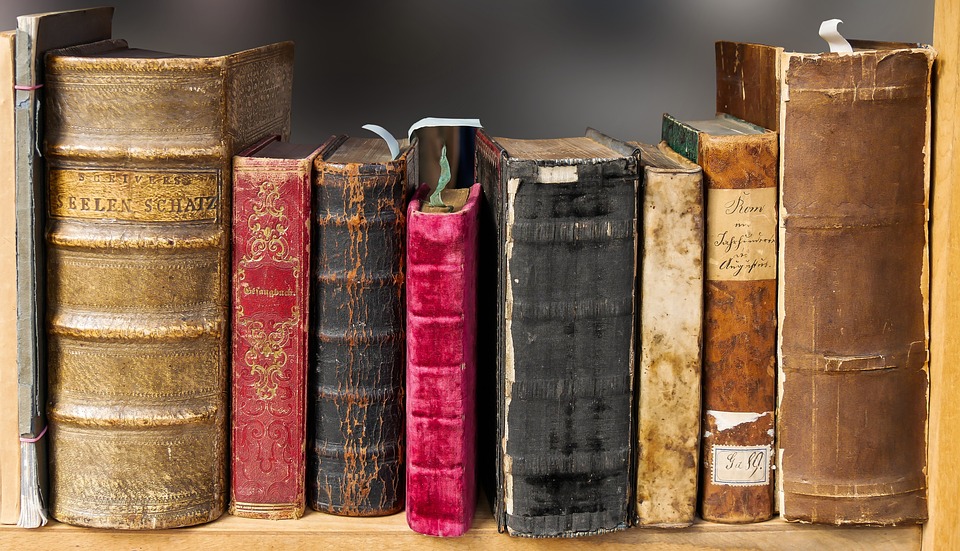Eight Ways Being a Reader is Crucial for Writers
This article originally appeared on Robin Mason's blog on January 24, 2019.
I have been invited to speak to high school
and middle school language classes. When we get to the question and answer part of what
is the most important thing someone can do to prepare to be a writer, I tell
them, “be a reader.” Those who cannot understand are doomed to be neither.
 It’s not too much to presume that people who
want to play with words do so because they love them. It may be a love/hate
relationship, but it must passionate, as passion undergirds story. If you have
little experience with story, whether it’s someone else’s or your own, you are
in no position to offer a tale to anyone else. As you can read between the
lines above, being story—that is,
living widely enough to be able to look back and appreciate the scenes that
make up life—is the second part of an equation for authorship that has an
endless answer like the square root of pi. For now we’ll focus on the first
aspect—Why Read?
It’s not too much to presume that people who
want to play with words do so because they love them. It may be a love/hate
relationship, but it must passionate, as passion undergirds story. If you have
little experience with story, whether it’s someone else’s or your own, you are
in no position to offer a tale to anyone else. As you can read between the
lines above, being story—that is,
living widely enough to be able to look back and appreciate the scenes that
make up life—is the second part of an equation for authorship that has an
endless answer like the square root of pi. For now we’ll focus on the first
aspect—Why Read?
A person who wants to write literature but will
not read it can sound like a human explaining to a guppy what it’s like to sit
in a recliner and watch television. Anyone can learn the mechanics of language.
People can learn to repeat a joke or assemble facts for a report, but a storyteller
is an inventor. Inventors don’t generally birth a concept into an immediate,
fully-functional working contraption without some apprenticeship, doodling,
tweaking, and trial and error. A person with an idea who refuses to go through
the work of developing that notion into a presentable product usually gives up,
hires someone else, or fails.
Like inventors, authors are constantly learning.
We learn from others, and from trial and error. Here are eight ways being a
gluttonous reader helps writers.
1, Osmosis. Yes, the sponge effect. By soaking up good
stuff, it will seep into your membranes. You may not know initially why a
sentence sounds good, or a piece of dialog has a great back-and-forth that just
works, but it will stay with you and
you’ll have a better chance of spitting it back out in a sensible way. However,
you know what happens when you let your sponge sit in unpleasant gunk. Rinse
and repeat. Do this by
2, Reading
carefully. Read from different
large publishers and indies, as well as some self-published material. If you
don’t have a library card, get one. Even rural communities have access to
public libraries. Become such a good reader that you’ll be able to figure out
if the publisher missed an error. Large publishers have several layers of
editing and proofreading before they give a product to the public. Learn what sort
of material is popular, and are good sellers, talked about, and why. You should
also
3. Read
widely, especially outside your
genre. Include nonfiction, especially poetry, and fiction. Nonfiction takes a
practical approach to a topic. There are often reference and notes about
research. Fiction writers can find new avenues of research, and information
that will make fiction that much closer to believability. Nonfiction authors
can learn to put their material together in ways that create interest and
intrigue. Poetry is the ultimate distillation of language to create story. If
you don’t know poets, find some! Writers will have to create marketing material
for their own work, which often includes back cover copy, a synopsis, a hook
sentence, and a biography. This material should be attention-grabbing and poets
know how to draw the essence from experience with a perfect word.
 4. Copy. Not plagiarize. Go ahead and keep a notebook
of phrases that move you from the books you read. Why did that word or scene or
sentence evoke emotion? How can you create that mood in your story? Begin to
appreciate the doodling, the tweaking, the sweat that went into developing that
moment. Know that quite likely, that phrase or sentence was the result of
several minds mulling over the words. The author may have originated it, or perhaps
the urging came from an agent or developmental editor. A copy editor may have
requested a tweak. A publisher may have asked for an addition or deletion.
Careful, studious readers can understand that writers will have to develop a
working relationship with their editors and
their readers. Careful readers will eventually come to appreciate the
4. Copy. Not plagiarize. Go ahead and keep a notebook
of phrases that move you from the books you read. Why did that word or scene or
sentence evoke emotion? How can you create that mood in your story? Begin to
appreciate the doodling, the tweaking, the sweat that went into developing that
moment. Know that quite likely, that phrase or sentence was the result of
several minds mulling over the words. The author may have originated it, or perhaps
the urging came from an agent or developmental editor. A copy editor may have
requested a tweak. A publisher may have asked for an addition or deletion.
Careful, studious readers can understand that writers will have to develop a
working relationship with their editors and
their readers. Careful readers will eventually come to appreciate the
5. Rules of
language. Grammar. The mere
presence of the word can be as frightening as the word algebra is to those of
us who think it’s ridiculous there can be an endless answer to the square root
of pi. Good readers should pick up some natural grammatical dynamics, general
punctuation, and the understanding that syntax will guide your vocabulary
choices. As an editor, however, I say this concept is wishful thinking more
than it should be. Bibliophiles will need to spend some time undoing whatever
it is that made you think it was okay to put a period outside of a quotation
mark, or dangle prepositions, or misplace modifiers. Readers who learn grammar
will unfortunately be utterly ruined for reading after some of the mystery of
untangling language is revealed.
But, wait! Now writers who are qualified to
know when it’s okay to break the rules will be inducted into
the secret society of those who can break them well. You may not have
even noticed the number of times I begin a sentence or a paragraph with a
conjunction. What you won’t know is how
many adverbs and modifiers I removed or the tenses or plurals I adjusted in my
self-edit, and that’s as it should be. Don’t be one of those authors who argue
with their editor about how so-and-so author broke this-and-such rule. Don’t
bother to hire an editor if you know everything. If you’re smart enough to know
that you don’t know everything, you’ll be admitted to the inner circle of knowing
when it’s okay for YOU to break the rules. Because writers who read
know general rules, they see patterns. A single paisley flower in a plaid weave
sticks out. So does your attempt to change points of view or use the wrong
tense. These errors make writers look bad. It can affect your
 6. Natural
marketing and networking. If you
ask for endorsements or reviews from authors you respect, but are turned down
or get a bad review, readers are not inclined to spend money on a product they
don’t think they will enjoy. They won’t tell others to buy the book, or worse,
will tell others how bad it is. Word of mouth will always be the best marketing
for any product or service. Authors who read should talk about what we’re
reading and something about why we like it or think others will like it. We recommend
books to book clubs, our friends, and our circles of influence. Those of us who
teach use your work as material in our talks and workshops.
6. Natural
marketing and networking. If you
ask for endorsements or reviews from authors you respect, but are turned down
or get a bad review, readers are not inclined to spend money on a product they
don’t think they will enjoy. They won’t tell others to buy the book, or worse,
will tell others how bad it is. Word of mouth will always be the best marketing
for any product or service. Authors who read should talk about what we’re
reading and something about why we like it or think others will like it. We recommend
books to book clubs, our friends, and our circles of influence. Those of us who
teach use your work as material in our talks and workshops.7. Reading also shows us how to do Market Analysis for our own work. Reading other books like ours and comparing our work helps define our readership. And finally, reading authors
8. Help other authors with a REVIEW! Review
books on as many social and publisher’s sites as you can. Use your name and
website link. Reviewing is a great service networking with other authors and
their readers.
Ultimately, our goal as Authors should be
that we are Read. If all you want is to be published, that’s a pretty small
niche. Anyone can get published these days. Any writer can write. An author
shares a gift that multiplies and enlarges a reader’s spirit.
*Photos within the post are licensed by Creative Commons and free to
reprint for personal and commercial use without attribution. They are courtesy of Pixabay.




